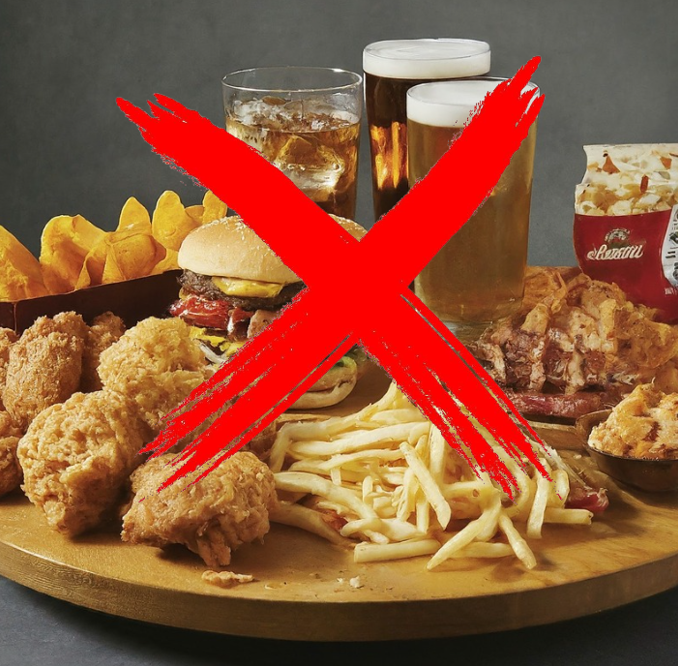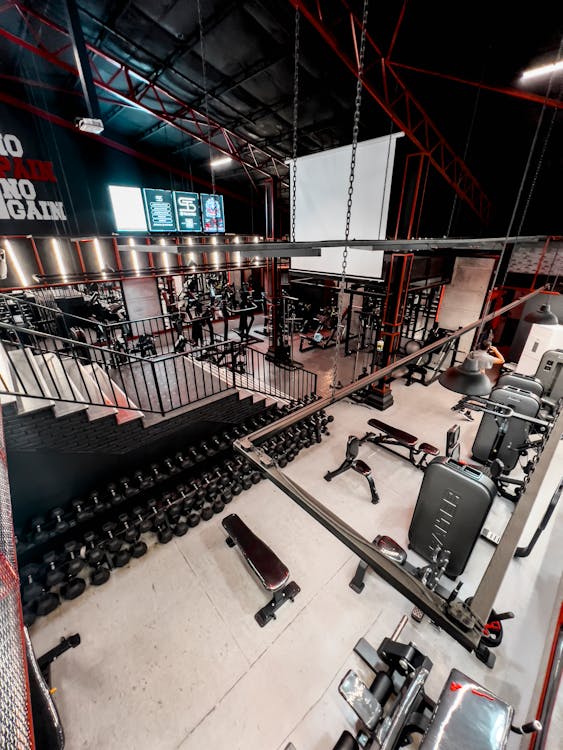There is a misconception that the more calories we consume, the more weight we will gain. That’s why many people start eating junk food. But your body needs healthy calories and nutritious foods; otherwise, you will put on fat instead of muscle and may develop various diseases in the long term, such as diabetes, gynecomastia, mental health disorders, and an increased risk of cancer.

According to WHO, 8.4% of the population is underweight. Some people try very hard to eat more but still don’t see results. The common problem is that they don’t understand how weight gain actually works. Additionally, being underweight often leads to a lack of recognition from others, lowers confidence levels, and can even result in facing discrimination. Sometimes, people make fun of you, saying, “Why are you so skinny? Don’t you get enough to eat?” This can cause anxiety about going out.
In this article, you will learn how flavorful and healthy the weight-gaining journey can be, making it an enjoyable experience. Just keep reading to find out how.
Fundamentals of Gaining Muscle
You can gain weight in two ways: the unhealthy way of gaining fat and the healthy way of gaining muscle. It’s crucial to understand the basics because fat can also increase during the weight-gaining journey. To minimize fat gain, you must have the knowledge required to grow muscle effectively. There are three main components to gaining muscle:
- Lift Heavy (Progressive Overload)
- Proper Nutrition
- Rest and Recovery
1. Progressive Overload
Without resistance training, it’s impossible to gain muscle—what you gain instead is fat. The simple process of growing muscle involves breaking it down, repairing it, and achieving muscle hypertrophy. When you lift weights, you create micro-tears in the muscle fibers—that’s the first step. As you lift heavier weights, you cause more fiber tears in the muscle, which is essential for building bigger muscles.
Proper Nutrition (Consume More Calories)
When you are building muscle, you need to consume more calories than your regular requirement. How many calories you should consume depends on your BMI and daily activity level. Ideally, a man needs 2,500 calories, and a woman needs 2,000 calories per day, but this varies from person to person. When aiming to gain weight, you must consume 500–700 calories more than your regular requirement. Consuming more than this amount may lead to fat gain. By consuming more and burning more, you can eventually start gaining weight.
But the question is, “Where should I get these calories? Should I start eating junk and oily food?” No. To build muscle, you need nutritional calories. These should come from:
- Carbohydrates: 50%
- Protein: 30%
- Healthy Fat: 20%
Macronutrient Breakdown
Carbs
40% to 50% of your daily calorie intake should come from carbohydrates. Carbs are the main source of energy, which is used during your workouts. Not only do carbs enhance training performance by producing glycogen—stored in your muscles as an energy source—but they also aid in recovery. Some of the best sources of carbs include whole wheat bread, brown rice, oats, potatoes, squash, fruits, and legumes.
Protein
Protein is the building block of muscle, so if you want to build more, you need to increase your intake. During muscle gain, you require 1.6–2.5 grams of protein per kilogram of body weight. This means 30% of your daily calorie intake should come from protein.
After your workout session, when your muscles break down, your body begins repairing them. During this process, protein is essential for repair. When your body gets enough protein, it builds more fibers in your muscle tissue, leading to maximum hypertrophy. Some of the best protein sources include chicken, eggs, beef, turkey, fish, milk, yogurt, and cheese.
Fat
There are numerous reasons why you should not overlook healthy fats. The biggest reason is hormone production. Testosterone, the key hormone for building muscle, is directly influenced by fat. Also known as the growth hormone, testosterone production depends on adequate fat intake. If your body lacks sufficient fat, it will struggle to produce this hormone, which can become a major obstacle to muscle growth.
Healthy fats, such as omega-3, reduce inflammation and boost your recovery system. They also serve as a long-term energy source for your body and aid in the absorption of vitamins like A, D, E, and K. Additionally, healthy fats improve insulin sensitivity, allowing your body to process carbohydrates and protein more effectively.
Fat contains 9 calories per gram, helping you stay in a calorie surplus and consume more calories without feeling overly full. Some of the best sources of fat include ghee, olive oil, fish oil, nuts, egg yolks, dark chocolate, and more.
Example
Let’s do some math to understand this more effectively:
Suppose your weight is 75 kg. According to your BMI and regular activity level, your daily calorie requirement is 2,500. If you want to build more muscle, you need to consume extra calories—let’s say 500 more. That brings your daily intake to 3,000 calories. Now let’s break it down:
Carbohydrate: 50%
- 3,000 × 0.50 = 1,500 calories
- Each gram of carbs contains 4 calories, so:
1,500 ÷ 4 = 375 grams of carbs
Protein: 30%
- 3,000 × 0.30 = 900 calories
- Each gram of protein contains 4 calories, so:
900 ÷ 4 = 225 grams of protein
Fat: 20%
- 3,000 × 0.20 = 600 calories
- Each gram of fat contains 9 calories, so:
600 ÷ 9 = 67 grams of fat
So, for a 3,000-calorie diet plan, your macronutrient distribution should be:
- Carbohydrate: 375 grams
- Protein: 225 grams
- Fat: 67 grams
Rest and Recovery
Muscles don’t grow while you’re lifting weights at the gym. They recover and grow bigger after getting proper nutrition and adequate rest, leading to maximum hypertrophy.
Beginners at the gym often get overly excited and overtrain, sometimes working out six days a week. This can actually backfire, stalling muscle growth and even causing muscle loss.
It’s crucial to take at least 1–2 rest days per week. Rest heals your muscles and supports their growth. The best way to heal your body is through sleep. Aim for quality sleep of at least 7–9 hours per night. Most importantly, during sleep, hormonal secretion works faster and more effectively, which helps produce testosterone. Sleep restores your energy and ensures better performance the next day.
Meal Plan

Monday
7:00 AM – Breakfast
- 4 eggs (scrambled or boiled)
- 1 cup oatmeal (with honey and almonds)
- 1 banana
10:00 AM – Snack 1
- 1 handful of walnuts
- 1 apple
1:00 PM – Lunch
- 2 slices of whole-grain toast (with grilled cheese, spinach, and turkey slices)
- 1 cup of Greek yogurt
4:00 PM – Snack 2
- 1 protein bar
- 1 handful of almonds
7:00 PM – Dinner
- 150g grilled chicken breast
- 1 cup brown rice
- Steamed broccoli and carrots
9:30 PM – Late Snack
- 1 cup mac and cheese (made with low-fat milk)
- 1 slice whole-grain bread with butter
Tuesday
7:00 AM – Breakfast
- 1 smoothie (with protein powder, 1 banana, 1 cup spinach, almond milk, and peanut butter)
- 2 boiled eggs
10:00 AM – Snack 1
- 1 handful of cashews
- 1 granola bar
1:00 PM – Lunch
- 1 whole-grain wrap (with grilled chicken, avocado, spinach, and hummus)
- 1 orange
4:00 PM – Snack 2
- 1 handful of pistachios
- 1 protein shake (with whey protein and almond milk)
7:00 PM – Dinner
- 200g grilled salmon
- 1 cup quinoa
- Roasted zucchini and bell peppers
9:30 PM – Late Snack
- 1 cup cottage cheese with pineapple chunks
Wednesday
7:00 AM – Breakfast
- 1 whole-grain bagel (with cream cheese and smoked salmon)
- 1 boiled egg
- 1 cup orange juice
10:00 AM – Snack 1
- 1 handful of mixed nuts
- 1 pear
1:00 PM – Lunch
- 1 grilled chicken Caesar salad (with lettuce, spinach, and olive oil dressing)
- 1 small whole-grain roll
4:00 PM – Snack 2
- 1 protein bar
- 1 handful of sunflower seeds
7:00 PM – Dinner
- 200g lean beef steak (grilled)
- 1 baked sweet potato
- Steamed green beans
9:30 PM – Late Snack
- 1 slice of whole-grain toast with peanut butter and honey
Thursday
7:00 AM – Breakfast
- 3 scrambled eggs (with spinach and cheese)
- 1 whole-grain toast
- 1 cup mixed berries
10:00 AM – Snack 1
- 1 handful of almonds
- 1 apple
1:00 PM – Lunch
- Turkey sandwich (with lettuce, tomato, and mustard on whole-grain bread)
- 1 small orange
4:00 PM – Snack 2
- 1 protein shake (with whey protein, almond milk, and a banana)
7:00 PM – Dinner
- 150g grilled shrimp
- 1 cup brown rice
- Steamed broccoli and cauliflower
9:30 PM – Late Snack
- 1 cup yogurt with granola
Friday
7:00 AM – Breakfast
- 1 smoothie (with protein powder, 1 cup spinach, 1 banana, and almond milk)
- 2 boiled eggs
10:00 AM – Snack 1
- 1 handful of pistachios
- 1 granola bar
1:00 PM – Lunch
- Chicken and avocado wrap (whole-grain tortilla)
- 1 apple
4:00 PM – Snack 2
- 1 handful of walnuts
- 1 protein bar
7:00 PM – Dinner
- 150g grilled chicken breast
- 1 baked potato (with sour cream)
- Steamed carrots and green beans
9:30 PM – Late Snack
- 1 slice whole-grain bread with butter and jam
Saturday
7:00 AM – Breakfast
- 4 scrambled eggs (with bell peppers and onions)
- 1 whole-grain English muffin with peanut butter
- 1 glass of orange juice
10:00 AM – Snack 1
- 1 handful of sunflower seeds
- 1 banana
1:00 PM – Lunch
- Tuna salad (with lettuce, tomato, cucumber, and olive oil dressing)
- 1 whole-grain roll
4:00 PM – Snack 2
- 1 small bowl of mixed fruit
7:00 PM – Dinner
- 200g baked salmon
- 1 cup wild rice
- Roasted Brussels sprouts and asparagus
9:30 PM – Late Snack
- 1 cup cottage cheese (with a handful of berries)
Sunday
7:00 AM – Breakfast
- 1 smoothie (with protein powder, almond milk, 1 banana, and spinach)
- 1 slice of whole-grain toast with avocado
10:00 AM – Snack 1
- 1 protein bar
- 1 handful of walnuts
1:00 PM – Lunch
- Chicken and vegetable stir-fry (with soy sauce and sesame oil)
- 1 cup steamed jasmine rice
4:00 PM – Snack 2
- 1 handful of cashews
- 1 apple
7:00 PM – Dinner
- 200g grilled beef steak
- 1 cup quinoa
- Steamed broccoli and carrots
9:30 PM – Late Snack
- 1 slice of whole-grain bread with almond butter
Food to Avoid
Now that we know we need to intake more calories to gain weight, the question is: should we consume foods like burgers, pizza, and alcohol, which have an excess amount of calories? Absolutely not. These are like poison because they may have calories, but they lack nutritional benefits. Additionally, they are often deep-fried, making it difficult to accurately calculate the calorie amount. They contain trans fats and sugars instead of protein.

For these reasons, they harm our digestive system since they are low in fiber and can lead to problems like bloating and constipation. Processed foods also contain excessive sugar, which causes rapid spikes and drops in blood sugar levels, leading to inconsistent energy and fatigue.
Moreover, processed foods increase the risk of heart-related issues because they contain high amounts of sodium, unhealthy fats, and preservatives. By consuming these foods, we unknowingly consume many empty calories, which is why we don’t get the desired results.
Meal Timing and Frequency
When you’re on a weight gain journey, you must divide your daily meals into 6-7 portions and ensure there is at least a 2.5–3 hour gap between each meal. This gap is important for proper digestion; otherwise, if your body can’t digest the food properly, it won’t be able to absorb and distribute the nutrients throughout your body.
Our body has a limited capacity to digest and absorb what we eat and extract the full nutrients from it. If we eat all at once, our body may experience bloating, gas, and discomfort, which can reduce the muscle-building process.
However, by having regular meals, you ensure a steady supply of protein and amino acids, which are essential for repair and growth.
The Bottom Line
Diet plays the most important role in our physique. When it comes to gaining weight, each meal is a step that brings you closer to your dream physique. Now, let’s briefly discuss:
- If you’re struggling to gain weight, you’re likely making a mistake. Learn the basics of how muscle actually grows.
- Resistance training is key: lift heavy and try to increase by 2.5 kg every 2 weeks.
- Design your diet plan with a calorie surplus of around 500-700 (according to your needs) and ensure the best nutrition balance: Carbs 50%, Protein 30%, and Fat 20%.
- Make sure you take enough rest.
- Stop eating unhealthy junk food.
- Divide your meals to ensure proper digestion for better nutrient absorption and supply.



